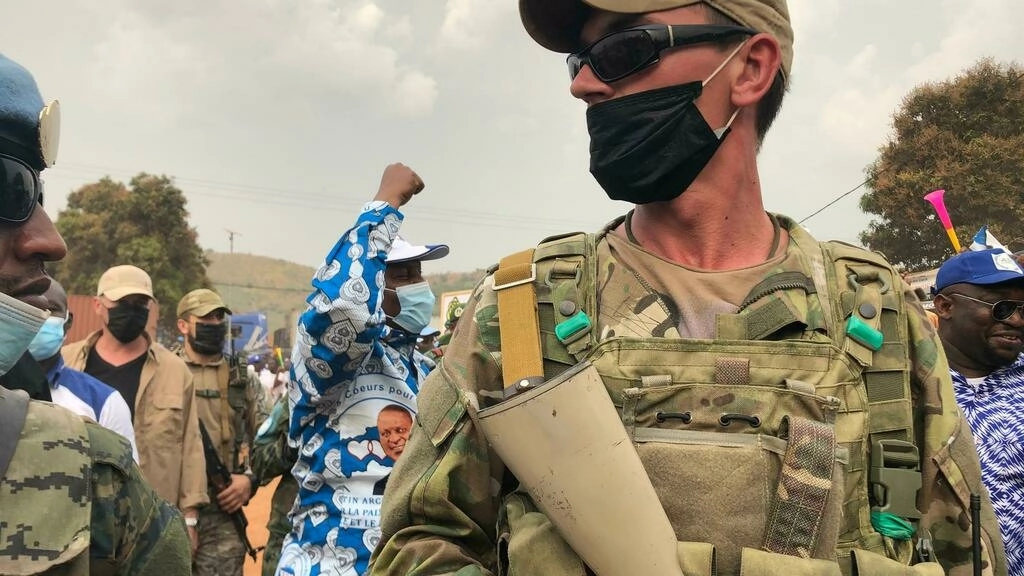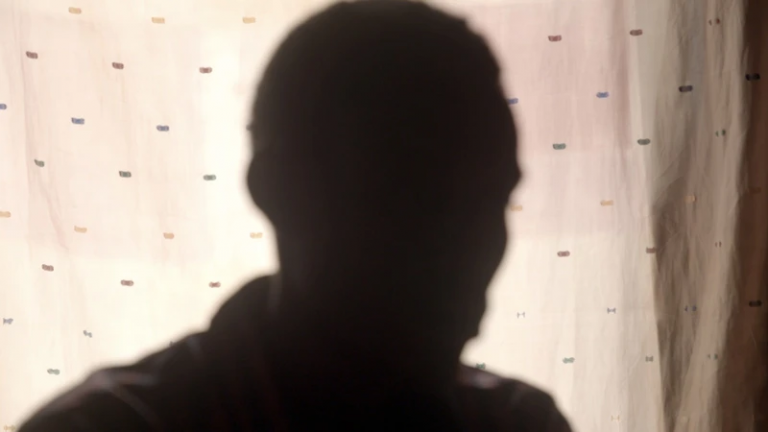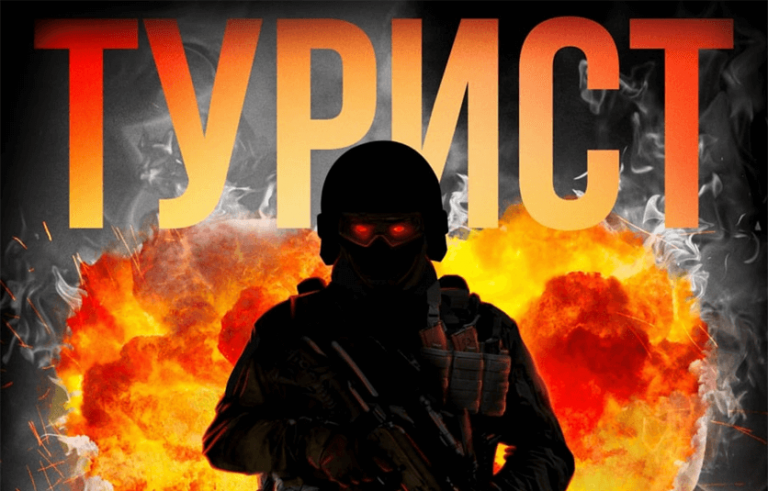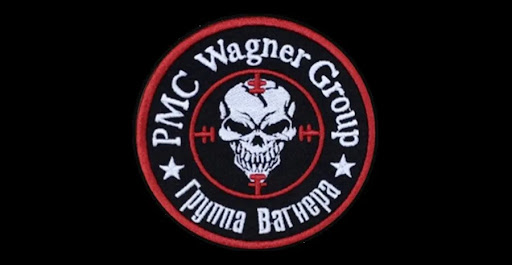RFI: In the Central African Republic, victims of Russian abuses break the code of silence

RFI – May 2021

The brutal methods of Russian “instructors” fighting alongside the Central African army are causing increasing fear and concern. On March 31, the United Nations Working Group on Mercenaries warned of a long series of serious human rights abuses attributed to them. RFI had access to numerous confidential documents and collected words from victims. Investigation.
In Bangui, the presence of Russian mercenaries and the abuses of which they are accused are subjects that are spoken of in a low voice, in private, and in anonymity. “It’s the elephant in the middle of the room,” a diplomatic source said. “We only see him, but we pretend he’s not there.” Officially, by the way, they are not there. The Russian narrative on the subject is extremely well-established. The Russian ambassador in Bangui acknowledges the sending of 535 men whom he presents as “instructors” who “do not take part in the fighting” unless “they are targeted”.
However, many national and international security sources contradict this version. They mention 800 to 2,000 mercenaries deployed in the country, alongside the Central African armed forces, often “on the front line” during clashes and also present at checkpoints and strategic locations.
For a part of the public, weased of suffering the occupation and violence of armed groups, the Russians are saviors. They were instrumental in the counter-offensive that retaken the majority of the country’s major cities. Their action is also supported by an active communication campaign by the authorities. Few dissenting voices dare to publicly question their methods, in the climate of fear that has settled in some parts of the country.
Broken Omerta
On March 31, for the first time, a group of independent experts came to break this omerta. In a statement, the UN Working Group on the Use of Mercenaries attached to the Office of the United Nations High Commissioner for Human Rights in Geneva, denounces the increased use of private security companies by the bangui authorities. And warns of a long list of abuses “attributable to them”: “mass summary executions, arbitrary detentions, torture during interrogations, enforced disappearances, forced displacement of civilian population, indiscriminate targeting of civilian facilities, violations of the right to health and increasing attacks against humanitarian actors. »
Three Russian entities are mentioned in this statement: the “Wagner Group”,considered the private armed wing of Moscow, some of whose fighters have recently been under complaint for a possible war crime in Syria; “Sewa Security Services”, a company under Central African law founded in Bangui in 2017 and considered as Wagner’s subsidiary in the country; and finally “Lobaye Invest SARLU”, a mining company founded in the Central African Republic in 2017, one of whose leaders was placed under sanctions by the United States. The Working Group says it has gathered evidence of their “involvement in a series of violent attacks” in the Central African Republic since last December.
Several internal UN reports that RFI consulted support these accusations. One of them lists at least a hundred victims of violations of human rights and international humanitarian law committed either by the Faca and their Russian allies or by Russian elements alone, between January 1, 2021 and mid-April. These violations included 26 extrajudicial executions, 5 rapes and 27 cases of arbitrary arrest and deprivation of liberty. “Many civilians have been killed or injured … although they are very far from legitimate military targets,” the report’s authors said.
Among the most affected prefectures: Ouaka, northeast of Bangui. For two months, Bambari, the capital of this prefecture, located 370 kilometers from the capital, lived under the yoke of the rebels of the Coalition of Patriots for Change (CPC) led by former President Bozizé. They prevented the holding of the presidential election on 27 December and imposed on the population a climate of violence: threats, taxation, arrests. On February 15, 2021, the Faca and their Russian allies entered Bambari to retake the locality.
“They wanted to kill people”
On this day, the “Russian instructors”, who are supposed not to fight, play a decisive role. The rebellion put up fierce resistance to them. The fighting is fierce. In particular, they are raging around the Al-Takwa Mosque, located not far from a base of the UPC, an armed group from the former Seleka, now a member of the rebellion. Fleeing the advance of the Russians, rebels retreated inside the mosque, where civilians had found refuge.
“The rebels came in and the Russians fired right away, even though there were civilians,” a witness said. “The Russians came in and shouted, ‘Where is Seleka? Where is Seleka?” ” says another resident of Bambari present at the scene. “The Imam said, ‘Lie down! Go to bed!” Then the Russians started shooting anywhere. I was overwhelmed. There were women and children,” said the resident, who remembers seeing a vehicle armed with a machine gun positioned in his direction just before fleeing.
Two confidential reports that RFI was able to consult corroborate the account of these witnesses. One of them, signed by the Human Rights Division of the UN Mission in the Country (MINUSCA), concludes that there is “excessive use of force” by Russian mercenaries. According to this document, “three young men” were “executed” at the mosque on February 15 “by the Faca and Russian forces”. “They didn’t try to find out who was a rebel and who was a civilian. They wanted to kill people,” said a security source. Photos taken after the fighting testify to the use of heavy weapons with regard to impacts.
On the same day, a similar scene is repeated at the Élevage urban health centre at the entrance to the displacement camp of the same name. The versions differ on the chronology of events but converge on one point: the Russian elements engage the fire in the health center. At least one civilian was killed, according to testimony corroborated by one of the confidential reports RFI consulted. “Whether these are places protected by international humanitarian law, that’s not their problem. Anyway, they don’t know him,” said a humanitarian source.
After two days of fighting in Bambari, the bodies are gathered in the mosque compound: about fifteen in total, according to a video viewed by RFI and authenticated by Amnesty International. A witness present at the identification of these bodies assures that among them were “children, old women, and the elderly, victims of stray bullets”.
At the time, very little information filtered about these bloody events. But behind the scenes, the unrest is growing in Bangui. On 23 February, a delegation composed of several heads of agencies and NGOs (Unicef, Ocha, UNHCR, WHO, UNFPA and CCO), the Head of Safety and Security of the United Nations (UNDSS) and a representative of the French Embassy traveled to Bambari to “inquire about the situation”. But the mission is shortened, “at the request of the prefect of Ouaka who indicated that he had not been officially seized” of this mission, according to the report written at the end of this trip.
“I am alive by the grace of God”
Six weeks earlier, another incident at a checkpoint had already raised concerns about the methods used by the Russians. On December 28, 2020, the men of Moscow are positioned, as often, alongside the Faca at the entrance of Grimari, 80 km west of Bambari on the road leading to Bangui. A truck carrying goods and about thirty civilians does not stop at a checkpoint, despite the warnings of the Faca. The Russians open fire. Three civilians killed and 15 others wounded, according to a still confidential UN report.
“Colleagues who were next to me were hit by the gunfire. We tried to hide in the truck, but they continued to shoot, “says Michel (*), interviewed in a health facility shortly after the incident. “I myself was shot four times. I am alive by the grace of God,” the witness continues. Why didn’t the truck stop? “It’s an old machine, unwieldy. It takes time to downgrade. And the dam was not visible from afar,” a crew member, who was seriously injured, told RFI a few weeks later. A thick bandage covers his left eye, pierced by a bullet that day.
All interviewees testify, in this case too, to the excessive use of force. According to the internal and confidential report written by MINUSCA, none of the passengers were in military uniform. The tires and engine of the vehicle were spared from the shooting. The cabin where the passengers were located, on the other hand, was targeted. This “may indicate that the shooters intended to kill as many people as possible,” the report concludes.
“In the end, a Russian soldier pulled out a heavy weapon, he wanted to destroy the truck,” Michel said. “It was a Faca,”he says, “who intervened to stop him.” The “heavy weapon” Michel speaks of was a “rocket”, according to the internal UN report, which states: “The worst has been avoided”.
In Bambari, numerous arbitrary arrests
Return to Bambari. On February 16, the city was officially “liberated”. For the inhabitants, this is the end of a painful occupation by armed groups. It was also the beginning of the sweep operations carried out by the Faca and its Russian allies. According to concordant sources, in their hunt, the latter carry out numerous arrests, which even some Central African authorities denounce, in anonymity, the “systematic” and “arbitrary” nature. “The rebels are blending into the population to try to escape the security forces,” said a source close to the Central African Ministry of Justice, while also deploring the “legal uncertainty” surrounding these arrests. How many people were arrested during these operations?On the basis of what evidence? Where are they? In the absence of official communication on the subject, it is impossible to answer these questions.
One thing is certain, in recent weeks the list of families looking for their missing relatives is growing in Bambari. Several witnesses expressed their fear of being arrested on the basis of a mere suspicion of belonging to the rebellion or following a denunciation. “Some of my neighbours were arrested simply because they were singled out as part of the CPC.Someone says, “This one is a friend or brother-in-law of a CPC.” And even if they are lies, we arrest you,” said Abou*, a resident of Bambari. “My brother was arrested in the city center after being denounced by one of his colleagues,” françois* also testifies. Released since then, thanks to his family’s good relations with the armed forces, the young man was first, according to his brother, taken to the police, then hooded and taken to the Setero camp in Bambari where the Russian mercenaries settled.
When we met Marthe* in Bangui, she had already been looking for her missing son for a month, since his arrest in Bambari on 23 February. Witnesses, she said, told her they saw him being picked up with two of his friends in the middle of the market where he ran a small business, and then taken away in a car by men in uniform accusing him, too, of being a member of the CPC, which his mother denies. “I first looked for him in vain at the police, then at the gendarmerie, then I went to the Russian camps,” says Marthe. “The first time, a Faca there told me: ‘He’s not here anymore, we don’t have to come back. If you come back, we’re going to kill you.”Three days later, Marthe decided to try her luck again. This time he was informed that his son had been transferred to Bangui. Once in the capital, Marthe travels through all possible places of detention known. In vain. “In my neighborhood, people advise me to stop my research. They say it’s too dangerous. »
Climate of widespread suspicion
These arrests contribute to the climate of fear created by the presence of Russian mercenaries in certain regions of the country, which transpires over the course of this investigation. Despite the hopes raised by their intervention among the population, mistrust is growing. “We too were fed up with the rebels. When we learned that the Russians were coming, we thought it was good news,” said the relative of another missing man from Bambari. “But when you see what they are doing today, you wonder if they came to attack the rebels or us civilians.Another resident sums up, bitterly: “In January we were under the control of the ex-Seleka. Now we are between a rock and a hard place. »
Marthe still hopes that she will find her son, and dreads making the return trip to Bambari. “The Russians erected a barrier on the road at the entrance to Grimari. On the way out, I went there by bus. They took everyone down, and searched us one by one. Men are undressed. And if you have a small scar, even from an accident or medical care on your body, you are suspected of being a balaka or an ex-Seleka. And you’re screwed,” says Marthe. In the Central African Republic, some fighters carry scarifications. In the eyes of the Russians, any trace that could make us think of it or be assimilated to wounds during the fighting, is considered a sign of belonging to the rebellion. That day, according to Marthe, some passengers did not get back on the bus. How many? This mother does not know how to say it. “Everyone is so scared that when you are allowed to continue on your way, you don’t ask questions. It’s every man for himself,” she says.
These testimonies on the search for scars come up regularly during our investigation. “When someone is sick here, they are traditionally treated.The person’s skin is incised with blades to apply traditional products. When the Russians see that, they say you’re a CPC. And it’s over for you,” said an authority in the Bossangoa region, 300 kilometers northwest of Bangui, who witnessed the close excavations.
Bossangoa is the stronghold of the anti-balaka armed group of former president and now general coordinator of the CPC, François Bozizé. There, perhaps more than anywhere else, the fear of arbitrary arrests is present. Testimonies against the actions of the Russians are numerous. Two weekly reports produced by the United Nations that we consulted report abuses committed there by “soldiers of bilateral forces” – the euphemism used by the UN to refer to Russian mercenaries. At the end of March in the region, several cases of wounded civilians targeted on the basis of a mere suspicion of belonging to the CPC were reported.
Gang rapes
Among the human rights violations also discreetly documented by the United Nations are sexual violence. In one of his reports dated February 25, recording a series of “abuses attributed to Russian allied forces,” a case of gang rape is detailed. In Yaloké, 200 kilometers northwest of the capital, six men broke the door of a 24-year-old woman’s house and “raped her collectively (3 of these elements) at gun point between 11 p.m. and 2 a.m.,” the document reads. There are many allegations in this regard. RFI collected several testimonies, still anonymous, for security reasons.
It is therefore out of sight that Gabriella*, in her twenties, agrees to talk to us. On February 15 in Bangui, the girl searched in vain for a motorcycle taxi to return home, as the curfew schedule approached. A vehicle stops at his height. Inside, seven men in military uniform. “They were Russians, only one spoke French. Another had a beard and tattoos,” the young woman recalls. “They offered me to get in their car.I thought they were going to drop me off near my house. I went up. And they took me away. »
Gabriella quickly understands the trap that has just been set for her. She is then taken to an unknown location. She spots weapons, beds, and then remembers being left in a room cluttered with cardboard, with the only piece of furniture being a mattress placed on the floor. Still in shock, Gabriella recounts with difficulty the ordeal that follows: a gang rape that lasts all night. “A first man came. I thought it was over. But other men have arrived.” Five Russians abused her that night, one after the other, says the young woman. “They tortured me like an animal. I don’t understand. I’m a human being like them,” says Gabriella. She was released the next morning with an injunction to remain silent on pain of reprisals. Today, she says she feels fear at the mere sight of a white man in military attire. “I thought the Russians were there to rescue us,” she repeats.
These rape accusations affect all actors in the ongoing conflict. In January, RFI warned of an increase in cases of sexual violence in Bouar committed by CPC rebels. Among this violence, rapes targeted in particular “women of the Faca”, reported at the time a security source. More recently back from an assessment mission to Bambari northwest of Bangui, the UN humanitarian coordination (OCHA) was alarmed in a confidential report also, of a “worrying increase in cases of sexual violence” in recent months in the city and its surroundings.
Looting, looting and occupation of public buildings
Another aspect of the methods employed by the Russians challenges observers in Bangui: the looting that is multiplying. “When they arrived, the Russians took everything. They take everything,” says an authority in the Bossangoa region. “They even kill the pigs. They don’t buy food. When they feel like eating, they kill the animals that people raise. They pick them up and eat them. They pick up foam mattresses, on which people sleep, and even plastic chairs. They loot too much! ” this personality is angry. Money, food but also motorcycles and phones.
Bossangoa and its region are considered the stronghold of former President Bozizé, coordinator of the CPC rebellion. This dimension has undoubtedly played a role in the focused violence against the property of these communities in particular. A report written by a security source on the various military operations that have been carried out there since the end of February reports several civilians killed, houses burned, and food looted.
In the commune of Benzambe, the birthplace of the Bozizé, a local organization also recorded more than 120 burned homes, including the family home of the former president. Central African forces and russians were on the scene at the time of the fires, said a member of the organization, who is still working to determine the exact circumstances of what he euphemistically calls “slippages.” “The Russians burned all the houses,” says Jacques, a resident of this locality, who had to take refuge in the bush. “There has been too much destruction,” he said.
Despite the liberation of part of the Bossangoa region, some displaced people are still reluctant to return to their homes. Some witnesses evoke a climate of “psychosis”. “We must not lose sight of the need for the arrival of the Russians in Bossangoa was preceded by a smear campaign orchestrated by the armed groups. That’s why they were greeted with great distrust,” a religious authority said in explanation. All the more, he said, that armed groups continue to attack civilians who have taken refuge in the bush. “I have just returned from a pastoral visit 30 kilometers north of Bossangoa, people are complaining because the anti-balaka continue to hunt them down in the bush. They take the population hostage so that they can survive. Because if the big cities have been “liberated”, elements of the armed groups are still in the bush, especially in the north-west of the country, and continue their harassment against the populations.
Russian paramilitaries are also regularly blamed for the occupation of public buildings including schools and churches, according to an internal UN working document. In Bossangoa, the Russians still occupy the town hall today. In Boukoko, a few kilometers north of Mbaïki, a city located 110 kilometers southwest of the capital, they settled in a public agricultural research center. They stayed for two months. “The Russians arrived first, the Faca were in the rear. That day, I heard the bullets whistling and ran away. They were shooting at close range,” said one resident. He speaks quickly, as if still astonished by the memory of that day, of the violence used when, according to him, the rebels had already left. “They started looting, breaking doors and taking them away to make beds, take mattresses from people’s homes. At my house they took my shoes, solar panels and kitchen utensils,” he describes.
RFI was able to view photos taken in the station shortly after the departure of the Russian forces. They confirm the descriptions of looting. On the walls of what was once the library, large blood stains can be seen. “It’s true that when they came the rebels left. But a conventional army is supposed to protect civilians and institutions. They scared us. It was a nightmare their presence,” he still trembles. According to this resident, few dared to venture to the outskirts of the Russian base. Except in cases of extreme necessity, to go and negotiate an essential travel authorization.
“The area is mined”
The Russians finally left Boukoko on February 16 to continue their offensive further north in the country. Not without leaving traces behind them. In particular, a strange unidentified machine, says Martial*, a resident, still frightened. “It looks like a mine. It is a tube, connected to a wire. They left him under a tree,” says Martial. According to him, the Russians had disposed of them in several places in Boukoko. And this one stayed. “The mayor asked the Faca to remove it, but they don’t know how to do it. So we put woods around so that the children would not go there.» What is it? A mine or another machine? It’s hard to say. No one dares to approach it. Let alone touch it.
This allegation, too, is not isolated. On January 10, Prime Minister Firmin Ngrebada went to Boali,less than 100 kilometers north of Bangui, to boost the morale of the troops fighting at the front. Journalists were invited to cover the trip. In front of them, Lieutenant-Colonel Wallo, head of the ILO6, in charge of the operation on this front, warned the Prime Minister that he could not let him approach his residence, because “the area is mined”. Later that day, as the forces lined up at the edge of the area under their control to receive a reward from the prime minister, an explosion was heard. General laughter in the ranks. “The area is mined,” they repeat.
Propaganda or reality? An internal UN document speaks of “suspicions”. On the other hand, it confirms the use of “Booby Trap” in some areas, in violation of “the principles of conduct of hostilities”. “One thing is certain, there is a willingness to communicate around the presence on the ground of IEDs,” notes a wise observer. “Probably for strategic purposes,” he says, to gain psychological ascendancy and create psychosis among armed groups. And in particular to dissuade them from taking the transhumance paths that allow them to bypass the axes where the Allied forces are concentrated.
On January 11, the fall of another unidentified “machine” in the Ndanga market, west of Bangui, had also caused panic. Toll: 10 dead and 16 wounded from concordant sources. It is attested that a Russian drone was flying over the area at that time. At that time, François Bozizé had been located in the area but from a security source, the rebels had already withdrawn by the time the device fell. Contacted at the time, MINUSCA said it was not aware of this event. Which machine was it? Was it “an equipped drone” as assured by the Coordination of Civil Society Organizations for Peace in the Central African Republic in a letter sent on March 2 to the President of the National Assembly? No one seems to be able to say that.
“We document what is happening in secret”
In a country where access to justice is difficult, many in Bangui fear that human rights violations blamed on Russians will go unpunished. On several occasions during this investigation, RFI contacted sources who said they were considering filing a complaint against the actions of the Russian paramilitaries, before giving up. “If you denounce what they are doing, you will immediately be accused of being pro-Bozizé. It is a climate of terror, a source of civil society is angry. Many people contact us to report what is happening but refuse to file a complaint. Cases of death threats against the few who have ventured there have been reported. “So, we document what is happening in secret while waiting for peace to return,” abounds an elected official.
The state of emergency and traffic bans resulting from ongoing operations also hamper the possibilities of investigations and the collection of evidence. “The Russians don’t want us to take pictures of them,” said one elected official. “If you take out your phone, they’ll rip it off,” he continues. They do not want witnesses. Added to this is the little music of propaganda that has set in. It is impossible to criticize the actions of the Russians on the ground without being perceived as an opponent of the government’s policy, or even an accomplice of the armed groups. “The authorities are advertising the Russians. They repeat that all they do is good, “regrets this elected official. Within an international organization, a source explains: “We have seen a spike in alerts on allegations of summary executions but we do not document them for the safety of our staff. In the Central African Republic, no one has forgotten the deaths of the three Russian journalists, murdered in 2018 near Sibut, a town 300 kilometers north of Bangui, in murky circumstances, while they were already investigating the mining activities of the Wagner Group.
Behind the scenes, controversy is also mounting over the position of MINUSCA, accused of remaining silent on the presence of mercenaries in the country, and on the serious human rights violations that are documented. Especially since the United States, the largest financial contributor to peacekeeping missions, placed under sanction at the end of September eight individuals, some of whom are linked to the companies cited by the UN Working Group on the Use of Mercenaries. Among them, Dmitry Sytii founder of Lobaye Invest and known in Bangui as the translator of the presidential advisor Valery Zakharov.

The “silence” of MINUSCA
Recently, the speech of the head of the UN mission has been shifted. On April 9, returning from a trip to Moscow, Mankeur Ndiaye announced on RFI investigations into these abuses attributed to Russian mercenaries, and claimed that Moscow had agreed to cooperate. On the same day, President Tuadera’s Russian Internal Security Adviser, Valery Zakharov, reacted on Twitter to denounce “false” statements. He claims to have contacted Russian Deputy Foreign Minister Sergei Verchinin about this. “He let me know that the crimes allegedly committed by the Russian instructors were not the subject of his exchange with the head of MINUSCA,” the adviser said.
In any case, the words of the head of MINUSCA constitute a significant change. In December 2020, Mankeur Ndiaye, did not hesitate during an interview with RTS, the Senegalese public television, to support Moscow’s version that the Russian reinforcements would be “instructors” legally deployed as part of a defense agreement between Bangui and Moscow.
“Anticipating embarrassing revelations (…), in recent weeks, MINUSCA seems to be distancing itself from this ‘private partner of the Central African government’ that is never talked about but is everywhere,” said researcher Thierry Vircoulon recently in a post published on the blog of the French Institute of International Relations (Ifri). “After three years of blindness and silence, will MINUSCA regain its sight and voice? ” wondered the researcher.
For a security source, the question must be asked differently. “The arrival of the Russians is above all the failure of MINUSCA and the entire international community. The real scandal is to be forced to bring in a thousand mercenaries, when there are already more than 10,000 peacekeepers in the country,” she said.
For a senior MINUSCA official, if the criticisms are legitimate, many in Bangui are silently accommodating the situation, not unhappy that an actor is finally working concretely on the ground to fight against armed groups. He concluded: “The Russians are not participating in a peacekeeping operation. They are at war. And war is dirty. »






